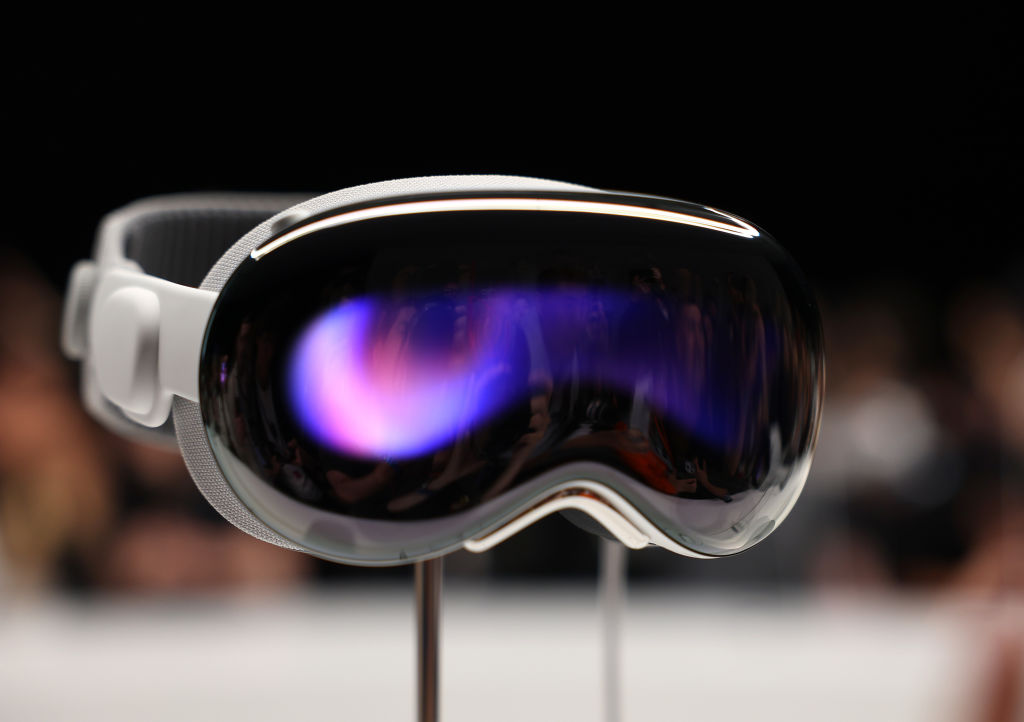Apple’s Vision Pro goggles, a high-priced headset that fuses virtual and augmented reality, represent a remarkable leap in technological advancement. And yet, though it will almost certainly make peoples’ lives easier, this new product may lead to substantial problems for society.
This cutting-edge device projects digital imagery over real-world environments, offering an immersive mixed reality experience. The setup is seamless, with an iPhone automatically carrying out eye and ear assessments. It is designed for comfort, with an adjustable knob for a custom fit, and while not notably stylish, they don’t appear ungainly.
Operating the Vision Pro is intuitive; a button above the right goggle opens a virtual screen of apps including popular mainstays for photos, messaging, calls, video streaming, and web browsing. To open an app, you simply look at it and pinch your thumb and finger together, while the same gesture allows you to close or move an app.
Apple’s demonstration of the Vision Pro paints a promising picture, suggesting it could revolutionize the business landscape by enhancing productivity, collaboration, and remote video conferencing. The Vision Pro offers stunning visuals, 3-D displays of distant locations, and inserts users into videos of past memories using one of its 12 cameras. It also promises a cinema-like experience for 3-D movie viewing from the comfort of your couch.
Sports fans are offered an immersive front-row-like experience. The technology seems ripe for adoption by professional and collegiate sports leagues for integration into subscription services. Importantly, the design of the Vision Pro allows users to maintain awareness of their surroundings, if desired.
On the other hand, however, the Vision Pro has evoked more skeptical responses. Though some are wary of purchasing the product due to its hefty price tag of $3,500, other more intangible problems surround this new technology.
WATCH: BEWARE of the Apple Vision Pro, Engineer Warns of Capacity to ‘Mind Read’ & Manipulate
While such an innovative product will almost certainly draw in more users–including children–it raises serious concerns about the exacerbation of screen addictions and the negative impact on real-world human interaction. Plus, such a device could very well continue to degrade individual privacy through its mass collection of data.
This underlines the complex and nuanced debate about the role of technology in our lives, as we stand on the brink of another transformative era.













